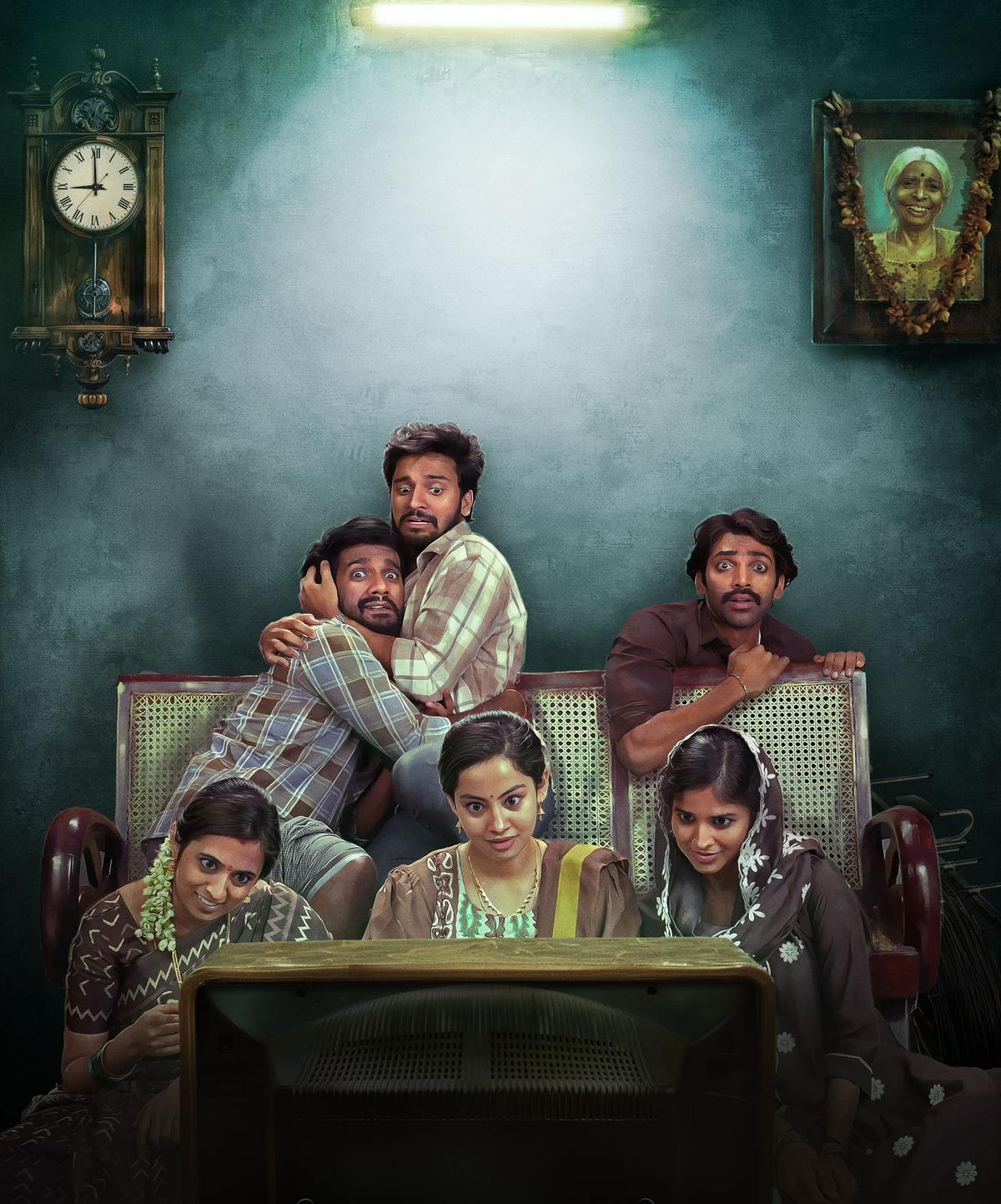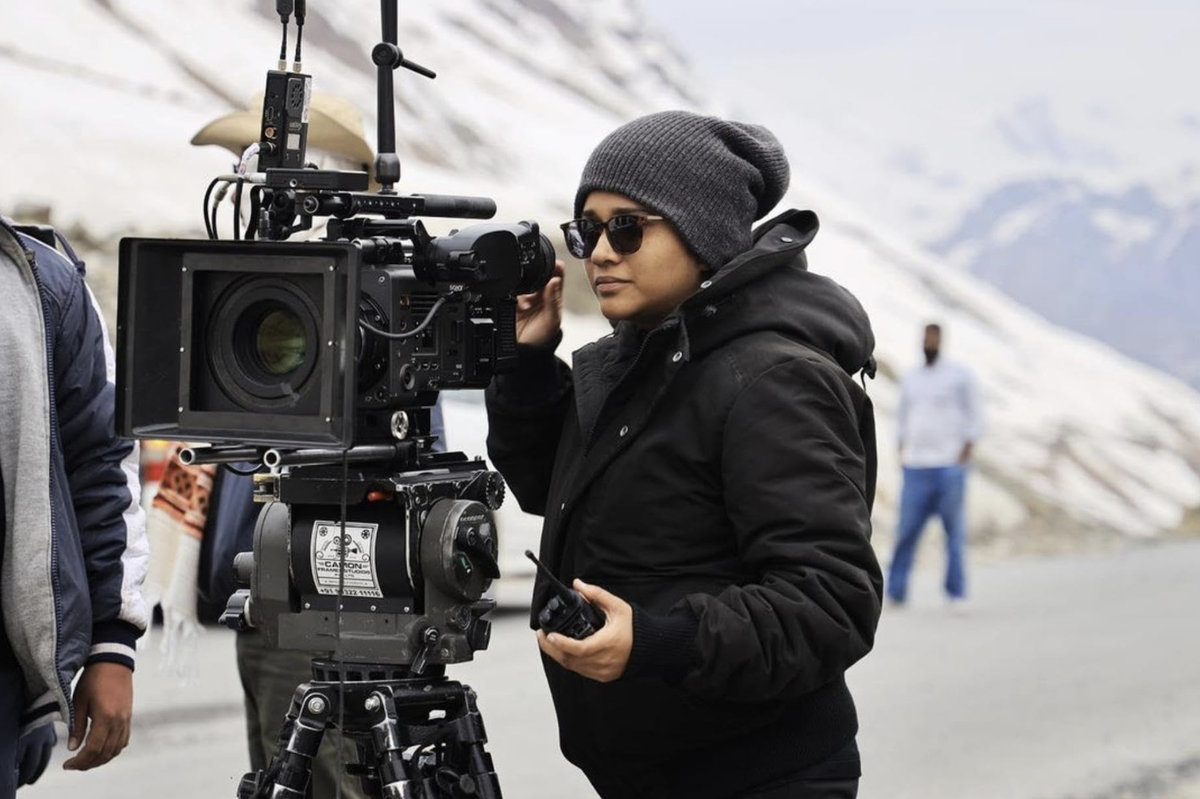Mridul Sen
| Photo Credit: Special Arrangement
In Subham, the Telugu film produced by Samantha Ruth Prabhu and directed by Praveen Kandregula, Bheemunipatnam in Andhra Pradesh is presented as an idyllic seaside town in pastel hues. This charming town transitions into a spooky setting as the story progresses into a horror comedy. Giving this film and its story, with its underlying themes of feminism and masculinity, a pleasing visual aesthetic is cinematographer Mridul Sen. Her camera functions as an invisible observer, dutifully capturing the essence of the story and its characters.
“We wanted Subham’s visual tonality to be realistic, on the lines of cinéma vérité,” says Mridul, referring to the style of documentary filmmaking that emerged in France in the 1960s. During the location recce, Mridul observed how the coastal town retained an old world charm and was mostly in pastel hues. The film’s story is set in the early 2000s, before the arrival of smartphones. Mridul says the team did not have to make major changes since “Bheemili is still untouched by today’s frenzy.”

For the story that revolves around three couples in a middle class locality, Mridul recalls how Praveen Kandregula did not want clothes or props to be too bright or new. “We coordinated with the costume department (Poojitha Tadikonda) and production designer (Ramcharan Tej Labani), ensuring that the colours were muted. “Praveen did not want anything brand new or even with a fresh coat of paint. He avoided curtains or cushions that could be jarring.”
This attention to detail extended to the makeup of the artistes, and the jumpscares that unravelled like a prank. “We wanted to keep things light rather than creepy,” adds Mridul.

A poster of ‘Subham’
| Photo Credit:
Special Arrangement
Subham marks Mridul’s entry into Telugu cinema, but it was the second Telugu film she signed. She and Praveen first worked on the soon-to-release Paradha, a road trip story featuring Anupama Parameswaran, Sangita Krish and Darshana Rajendran. “Paradha is poetic and earthy in its visual treatment. We were focusing on its post-production work when Subham came our way.”
Mumbai-based Mridul is an alumnus of New York Film Academy’s Los Angeles campus. She describes the film school as a cultural hotpot where she collaborated with peers from the US, Egypt, Venezuela, Brazil, Mexico, and Spain. “NYFA encouraged a collaborative atmosphere; we learnt direction, editing and colour grading as well. We handled different responsibilities while working on each other’s films.”
Mridul was fascinated by the visual arts in her formative years, from painting to photography, and had also been drawn towards television. “There was no defining moment or an epiphany, it was a natural progression from assisting my father, Sujit Asit Sen, a steadicam operator, during Dilwale and Singham Returns, to wanting to be a cinematographer.” Guided by cinematographer Binod Pradhan, she applied to NYFA.

Mridul Sen
| Photo Credit:
Special Arrangement
Mridul’s first feature was the Marathi film Khari Biscuit for which she won the award for best cinematography from Sakal Premier Awards, 2019. Commercials, music videos and short films followed. The short film Written By? fetched her the best cinematography award at the Kolkata Short Film Festival.
The chance to work with Praveen Kandregula came through common friends and Mridul had no preconceived notion about mainstream Telugu films. Having watched Praveen’s indie film Cinema Bandi, she was game for a new journey. A film’s genre and story are of prime importance to her, not the language.

While the response to Subham is still trickling in, Mridul is awaiting the release of Paradha. In contrast to the intimate world of Subham, she reveals that Paradha incorporates drone shots and wider frames as the narrative travels from the Telugu States to Dharamshala, using a visual palette steeped in stark, earthy tones.
Mridul does not make a big deal of being among the few female cinematographers in India, more so in Telugu cinema. Asked why fewer women take to the craft, she says after careful consideration, “There is a notion that this is a labour intensive job, involving long hours of being on our feet. I would argue that if I were in a desk job, it would be mentally taxing. Rather than talk about how cinematography is not solely a man’s job, I prefer to keep my head down, do the work and silently break the stereotype.”
Published – May 14, 2025 10:21 am IST